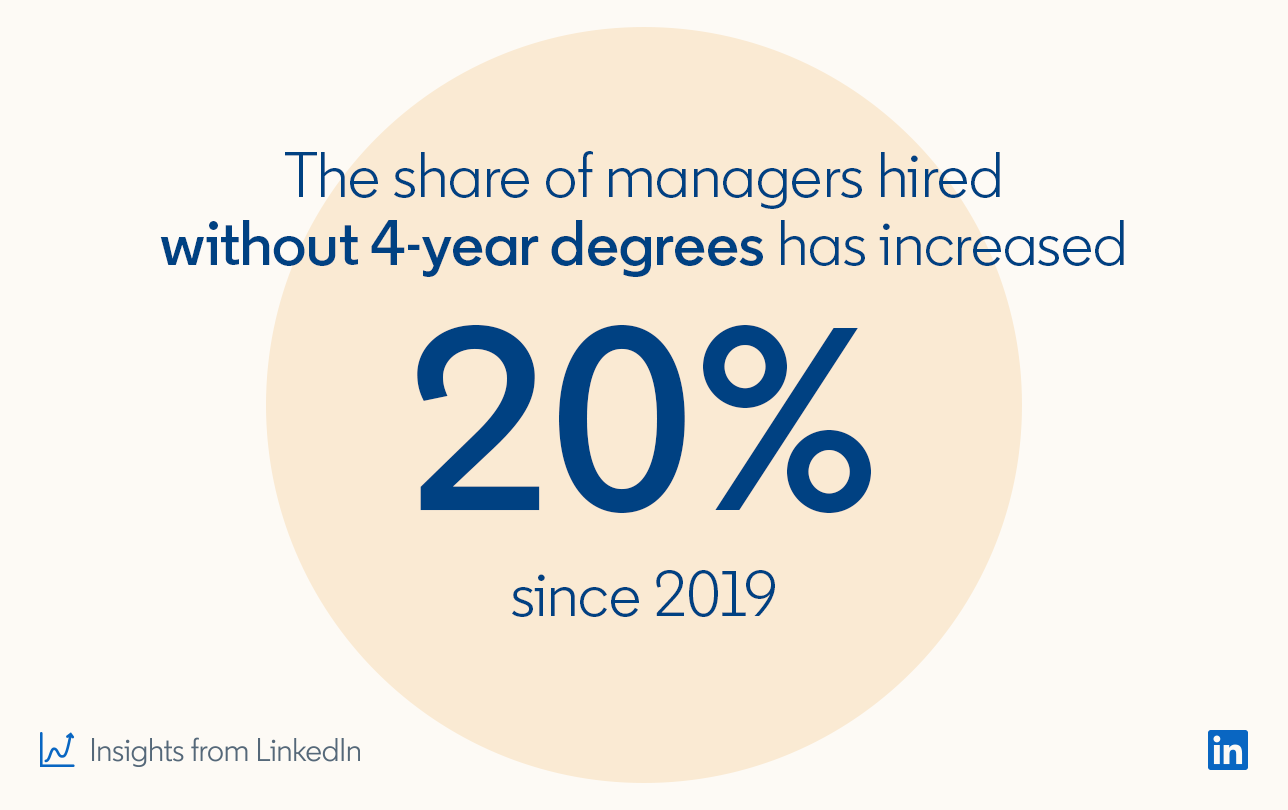
Source | business.linkedin.com | Gopika Maya Santhosh
Skills, not schools. Performance, not pedigree. Results, not requirements.
These expressions all speak to the goal behind skills-based hiring: when you need to hire someone, you care about what they can do — not where they’ve been. It’s about weighing a candidate’s competencies over their credentials.
This way of hiring can be a win-win: it extends opportunities to deserving candidates, while giving employers greater access to often-overlooked but highly qualified talent pools. In other words, it can help you build a more diverse workforce while also increasing the odds that you find the right person for the role.
There are signs that companies are embracing this way of hiring: some high-profile companies have stopped requiring bachelor’s degrees for many roles. And according to new LinkedIn data, over the last year, there’s been a 20% increase in managers hired who don’t have a traditional four-year degree.
That’s a meaningful improvement, but there’s still a lot more employers could be doing to ensure they are hiring based on a candidate’s abilities. And that starts with one of the first steps in the hiring process: writing the job description.
Read on to see why skills-based hiring is gaining steam and how rethinking your job descriptions can start your hiring process on the right track.
The benefits of skills-based hiring: greater diversity and stronger retention
In some cases, employers are probably using the school as a shorthand to prejudge the candidate’s skills. She went to Harvard, so she probably has strong leadership skills. He went to Stanford, so he must be a talented programmer. Education is being used as a proxy for skills, but research shows it’s a poor proxy.
While it may be an understandable shortcut, it can also be a short-sighted one. The educational system is far from a perfect meritocracy. Many people are shut out from opportunities just because of where they grew up, went to school, or landed their first job, leaving them with a weaker professional network.







